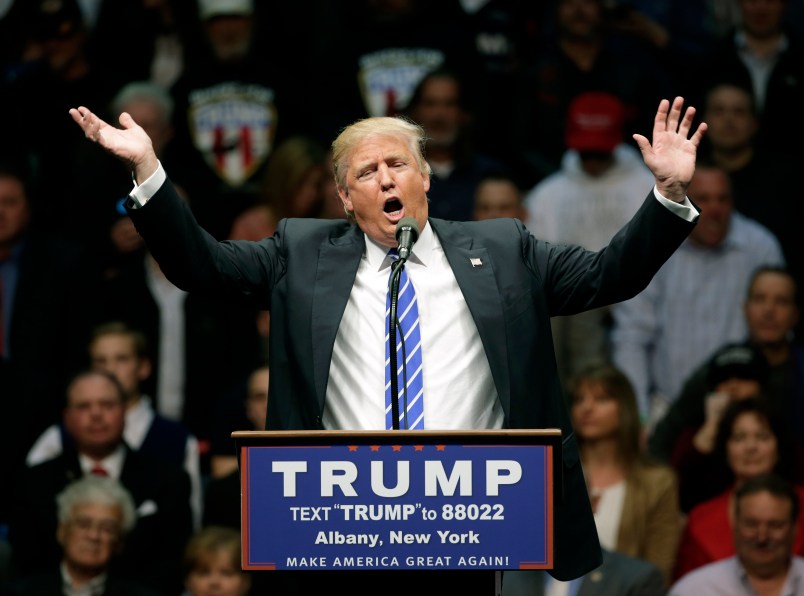A member of the Republican National Committee, who will sit on the convention rules committee, made a bit of a stir today when he said that 1237 wasn’t the magic number for Trump. It was probably more like 1100 delegates. He wasn’t saying that 1100 guaranteed Trump the nomination but that if he has more than 1100 he’ll be in a strong position to convince the remainder to come over and back him. A lot of people reacted like Randy Evans, the RNC committeeman, is crazy. But I’m not so sure. I won’t say that Evans has any special insight into the matter, at least not more than any other high ranking Republican. But I think he’s got a better handle on things than a lot of people who are chattering about this at the moment.
Listen to most anti-Trump Republicans and the impression is that if Trump comes into Cleveland with 1236 delegates, it’s basically “Sike! Thanks for playing, Donald. Buh-bye.” And it’s on to Cruz or some unicorn Republican. That’s certainly possible. Maybe even probable. But I think this line of reasoning carriers with it a huge amount of wishful thinking.
Lets start by saying that the last couple weeks has been a low point for Trump. He lost a primary in a major state (not a caucus or some tiny state he wasn’t really contesting). The weight of evidence about just how badly he’s likely to do against any Democrat started to sink in. And Ted Cruz started to make some real progress working the dark delegate game at the ground level. Each of those made a Trump defeat more plausible.
But in all likelihood Trump will score a crushing win in New York on Tuesday. And the states that come in New York’s wake look strong for Trump too. Those victories are largely factored into the accurate belief that Trump will have a hard time getting passed 1237. But those victories should take the whiff of defeat off him and change the mood accordingly. They’ll also buttress his argument that he’s winning and should be the nominee, even if he doesn’t have an absolute majority.
But here’s the thing. You can say you’re going to dismiss Trump, the probable winner of a big plurality of the votes and the delegates. But that doesn’t mean you’re going to be able to pull it off. If Trump is close – and 1100 of 1237 seems like a decent definition of close – I think he will come into Cleveland with far more support for the legitimacy, the justice of his position than Republican insiders and pundits realize.
Polls already show that clear majorities of Republicans believe that the person with the most delegates should be the nominee. They believe overwhelmingly that it would not be okay to nominate someone who didn’t even run in the primaries. Both majorities by definition include a lot of anti-Trump Republicans. This doesn’t even figure in the likely ferocity of Trump’s actual supporters – not even getting into the death threats that are already being tossed around.
This also means that even if delegates muscle up to deny Trump, they’re probably stuck with a choice between Trump and Cruz. And looked at up close it is not clear that Cruz is much better than Trump in electoral terms. When the realization that Cruz is the only alternative nominee sets in I suspect that will cool some of the excitement and perceived value of denying Trump.
Simply put, the belief in the strength of Trump’s argument – not among people in the hall but among Republicans on the outside to whom party leaders and delegates will have to sell the decision – will be considerably harder to resist that people realize.






